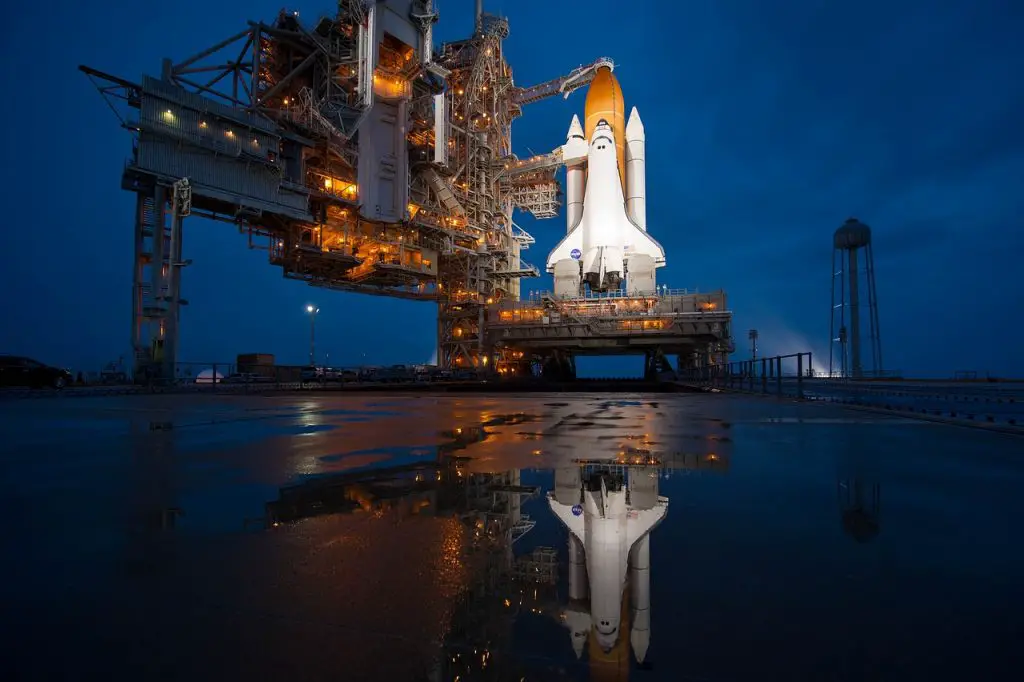Commercial space exploration refers to the exploration of space by private companies or organizations for commercial purposes. These companies aim to make a profit by developing and providing products and services related to space exploration, such as satellite communication, space tourism, and mining resources on other planets. In recent years, commercial space exploration has grown rapidly, and several companies are now investing heavily in this area. In this article, we will discuss what commercial space exploration is and its benefits.
Overview of Commercial Space Exploration
Space exploration has traditionally been the domain of government agencies such as NASA, Roscosmos, and the European Space Agency (ESA). These agencies have led several successful missions to explore our solar system and beyond. However, with the advent of private space companies, commercial space exploration has become a reality.
The commercial space industry is a relatively new industry, but it has been growing rapidly in recent years. Several companies, such as SpaceX, Blue Origin, and Virgin Galactic, are investing heavily in developing new technologies to explore space for commercial purposes.
Commercial space exploration has many potential applications, such as space tourism, satellite communication, and resource mining. These applications have the potential to generate significant revenue and profits for the companies involved.
Benefits of Commercial Space Exploration
Technological Advancement
Commercial space exploration is driving technological advancement in several areas. Companies involved in commercial space exploration are developing new technologies to explore space more efficiently, including reusable rockets and spacecraft, advanced propulsion systems, and autonomous robots.
These new technologies have the potential to revolutionize space exploration and have applications in other industries, such as transportation and energy. For example, reusable rockets and spacecraft could significantly reduce the cost of space missions, making space exploration more accessible and affordable.
Economic Growth
Commercial space exploration has the potential to generate significant revenue and profits, leading to economic growth. The space industry is estimated to be worth over $400 billion, and this is expected to grow to over $1 trillion by 2040.
The development of space-related technologies and services could create new industries and jobs, leading to economic growth and prosperity. The space industry has the potential to generate high-paying jobs in areas such as engineering, science, and manufacturing.
Resource Mining
Commercial space exploration could also lead to resource mining on other planets and asteroids. Some of these resources, such as water and minerals, could be used to support future space missions and settlements. In the long run, the ability to mine resources in space could reduce the cost of space exploration and make it more sustainable.
Scientific Discoveries
Commercial space exploration has the potential to lead to significant scientific discoveries. Private companies and organizations can conduct their own research and experiments in space, which can contribute to our understanding of the universe and help to solve some of the world’s biggest problems.
For example, the development of new technologies for space exploration could have applications in environmental monitoring, climate change research, and disaster response. Additionally, the study of space could lead to new discoveries in areas such as physics, biology, and astronomy.
Space Tourism
Commercial space exploration could also lead to the development of space tourism. Several companies, such as Virgin Galactic and Blue Origin, are already offering space tourism experiences, albeit at a high cost.
Space tourism has the potential to become a significant industry, generating revenue and creating jobs. Additionally, space tourism could inspire a new generation of space explorers and scientists.
Challenges of Commercial Space Exploration
While there are several benefits to commercial space exploration, there are also significant challenges that need to be addressed.
Cost
Commercial space exploration can be expensive, and it may be challenging for companies to generate enough revenue to cover the costs of their space missions. Additionally, the development of new technologies and services for space exploration can be costly.
Safety
Space exploration is inherently risky, and there are significant safety concerns associated with commercial space exploration. Spacecraft and rockets can malfunction, and there is a risk of accidents and collisions in space. The safety of crew members, passengers, and equipment is a critical concern in space exploration, and companies must take appropriate measures to minimize these risks.
Space Debris
Space debris is an increasing concern in commercial space exploration. As more satellites and spacecraft are launched into space, the risk of collisions with space debris increases. These collisions can cause significant damage to spacecraft and can generate even more debris, leading to a chain reaction known as the Kessler Syndrome.
Companies must take measures to reduce the amount of space debris generated during their missions and ensure that their spacecraft and equipment are protected from collisions with existing space debris.
Regulatory Framework
The regulatory framework for commercial space exploration is still in its early stages, and there is a lack of clarity around the legal and regulatory requirements for space activities. Companies must navigate a complex web of regulations and treaties related to space exploration and must ensure that they comply with all applicable laws and regulations.
Conclusion
Commercial space exploration has the potential to revolutionize space exploration and create significant economic, technological, and scientific benefits. Companies involved in commercial space exploration are developing new technologies and services that have the potential to transform the space industry and have applications in other industries.
While there are significant challenges associated with commercial space exploration, such as cost, safety, space debris, and regulatory frameworks, the benefits of the industry outweigh these challenges. As the industry continues to grow and evolve, we can expect to see significant advancements in space technology and exploration, leading to new discoveries and opportunities for growth and development.







